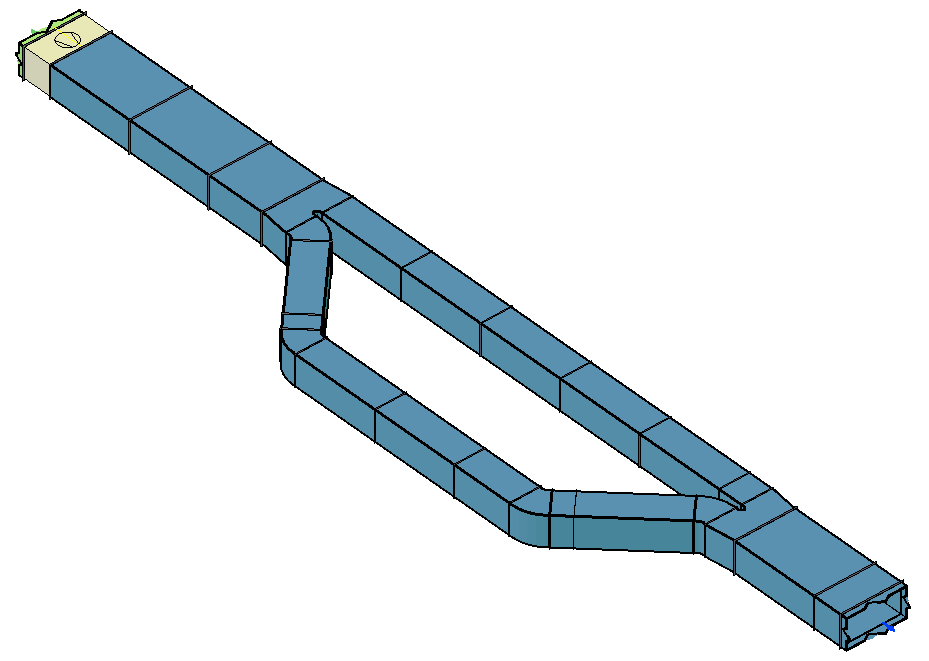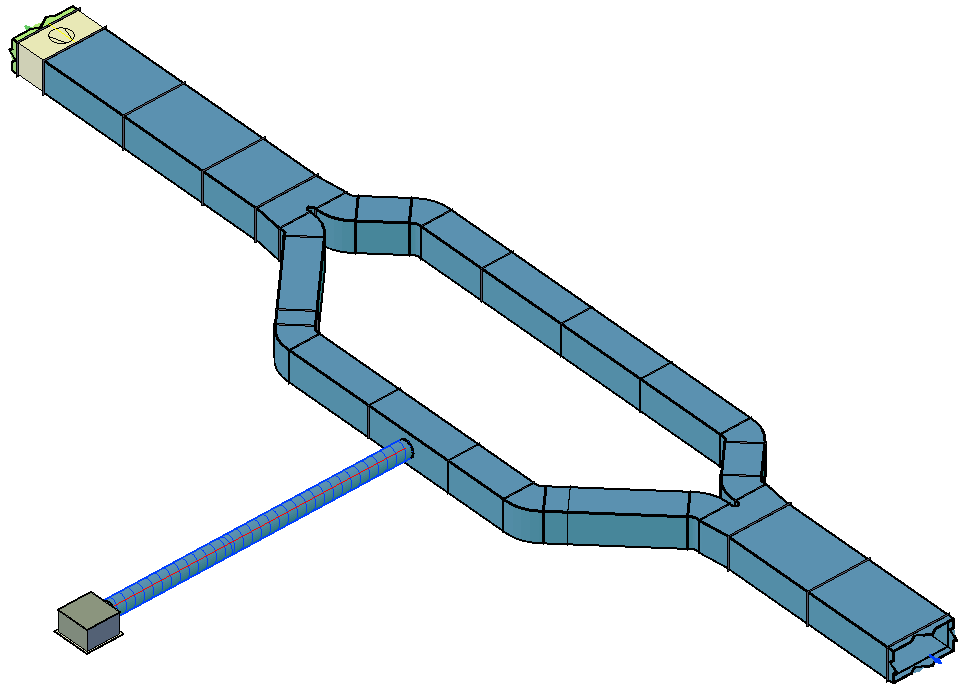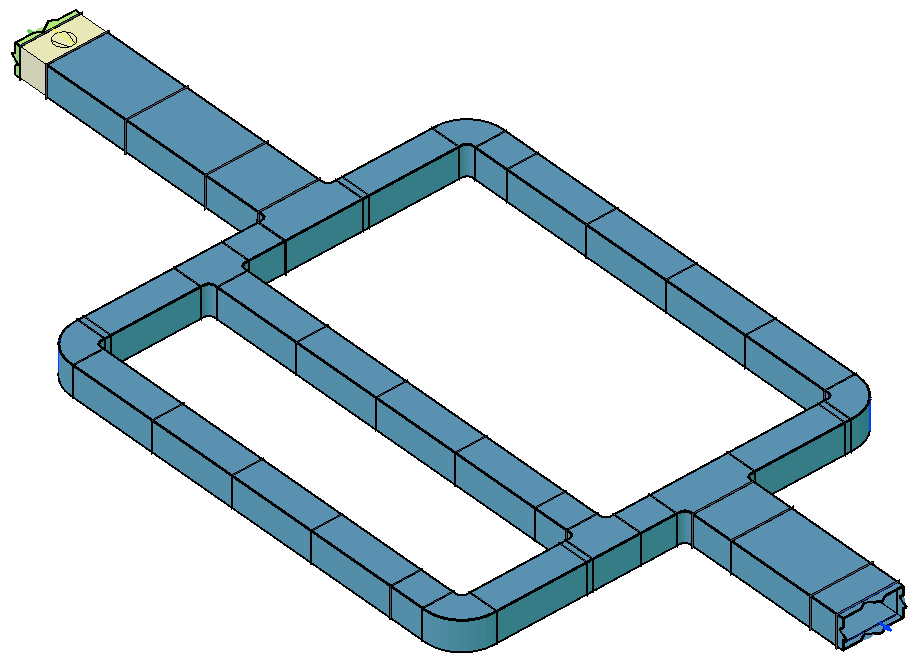About the fluid-mechanical balancing of cross-section splits
Explains the concept of fluid-mechanical balancing of cross-section splits in the design and calculation of duct networks.
A cross-section split is the parallel subdivision of an air duct system section via the split of branches into two or more ducts and the final merge of these branches back into one ventilation duct. A cross-section split is usually constructed where an air duct cannot be routed past an object due to lack of space, equipment (e.g. a column that has insufficient space on either side for the full width of the air duct.
A prerequisite for the calculation of a cross-section split is that there are no air outlets or partial network ends coming off the sections of the cross-section split. The flow paths through the cross-section split are balanced with each other. For each individual flow path, the volume flow rate that results from the prevailing pressure loss in the flow paths is determined. In the calculation dialog, the sections of the cross-section split are marked in the area of the section parts by indentation and color marking of the partial section number.
| Correct construction | Wrong construction with air outlet |
|---|---|
 |  |
 |